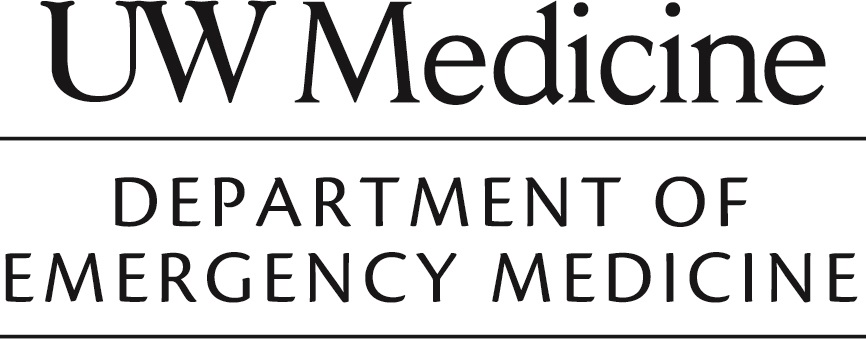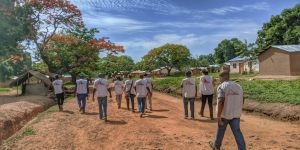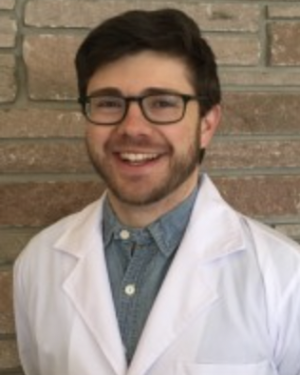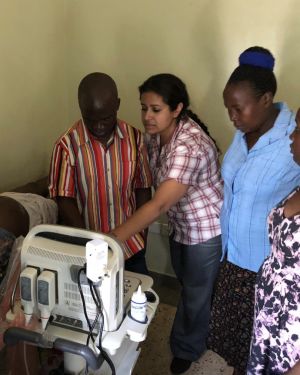UNIVERSITY OF WASHINGTON GLOBAL EMERGENCY MEDICINE AND RURAL HEALTH FELLOWSHIP PROGRAM

Fellowship Experience



Fellowship Curriculum
Pathways within the Fellowship Curriculum
There is a Rural health pathway with collaboration from Partners In Health (PIH), and a Humanitarian Emergencies focused pathway based with collaboration from Medecins Sans Frontieres (MSF). All fellows have shared objectives to develop an understanding of the unique needs and challenges to providing emergency care within the Alaskan Tribal Health Consortium and internationally. This will include experience in the direct delivery of care as well as the opportunity to learn the role of telehealth for remote care and training in extremely rural settings. Weekly didactics in culturally appropriate care delivery and AI/AN topics support clinical learning. The trainee will work directly with community health aides and develop cultural competence in caring for Alaskan Natives.
Rural Health pathway fellows will supplement clinical learning with international placement in a setting to effectively advance the implementation of emergency medicine in an international, resource limited setting by partnering with an internationally renowned health care non-profit organization, PIH. Fellows will learn care delivery mechanisms in rural international settings and develop the skills necessary for effective program development and implementation in resource limited settings (rural and international). This will include acquisition of knowledge and skills related to the performance of a needs assessment, program evaluation, and principles related to field work (food security, water and sanitation, personal security and refugee health). Fellows will also develop research skills and conduct a research project culminating in academic publication or presentation to add to the growing body of literature focused on global emergency medicine and rural health. Fellows will gain an understanding of domestic and international public health issues, relationships between non-governmental and governmental organizations in building health systems with limited resources, and the relationship between human health and human rights.
Humanitarian Emergencies Focused Pathway fellows will similarly learn to advance the implementation of emergency medicine in the global arena with focused coursework in humanitarian studies and partnership with an NGO or site specifically focused on disaster relief and emergency response. Prior fellows have done this through MSF, Doctors Without Borders. Fellows on this pathway will learn the principles governing effective humanitarian relief and disaster response including field experience, learn techniques for evaluation of global health projects including needs assessments and program evaluation and skills necessary for humanitarian field work including knowledge in the fields of food security, water and sanitation, personal security and refugee health. Fellows will develop research skills and conduct a research project culminating in academic publication or presentation to add to the growing body of literature focused on global emergency medicine. Fellows will gain an understanding international public health issues, relationships between non-governmental and governmental organizations in disaster response, and the relationship between human health and human rights.
Paths to Prepare Leaders
The Global Emergency Medicine Fellowship program at University of Washington in Seattle has two unique pathways (rural focus, humanitarian emergencies focus) to prepare future leaders in Global Emergency Medicine. Our program is unique, flexible, and allows more international and field based time than most others, with a robust and fully funded curriculum including MPH or DTMH and formal coursework in humanitarian response and social medicine in addition to funding for educational endeavors of the fellow’s choosing.
Alumni

Chelsea Williams

Daniel Ballew

Jodie Totten

Scott Owens
Contacts

Additional Application / Interview Information
Application Criteria
All applicants must register and apply through NRMP Match, Global Emergency Medicine Fellowship Consortium
.
Application materials should also be sent to uwglobalem@gmail.com
Application materials:
- Application Form
- Letter of Intent (1 page)
- CV
- Personal Statement (1 page)
- Three letters of recommendation including one from the current chair or residency director, and one from a mentor in global health (if applicable)
- USMLE transcript
We will begin interviewing qualifying applicants in September 2023.
Candidates must apply separately to their MPH program, and their chosen tropical medicine education program (e.g. GORGAS or London School). The fellowship director will work with the fellow immediately after selection to help guide these applications.
Application Process
All applications must be submitted by the application deadline through the SAEM Application Portal button below. Please note, you must also register for the NRMP Match
Interviews will be offered via Zoom in the month of September and October, annually, for select applicants. Fellows selected for our program will have a trip to Alaska, in March or April prior to 7/1 start date, to meet us in person and start the onboarding process.
Please contact us at uwglobalem@gmail.com for additional information.
Important Dates
Application Deadline
Interview Date
Eligibility

